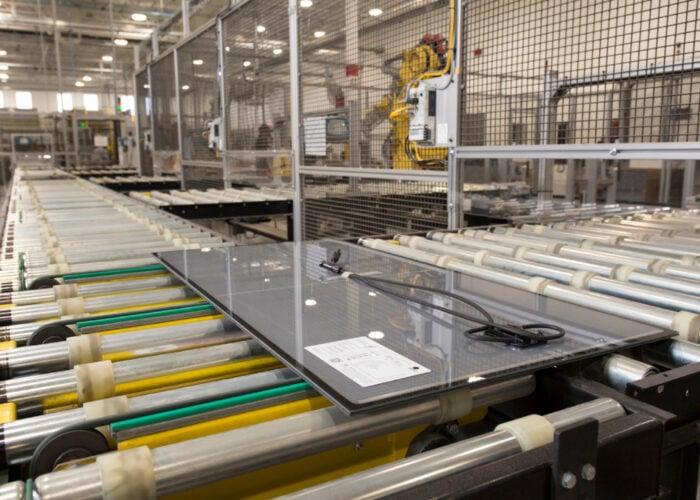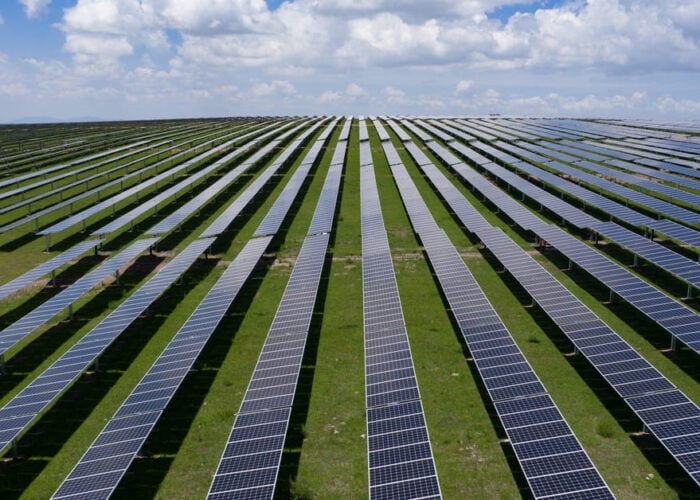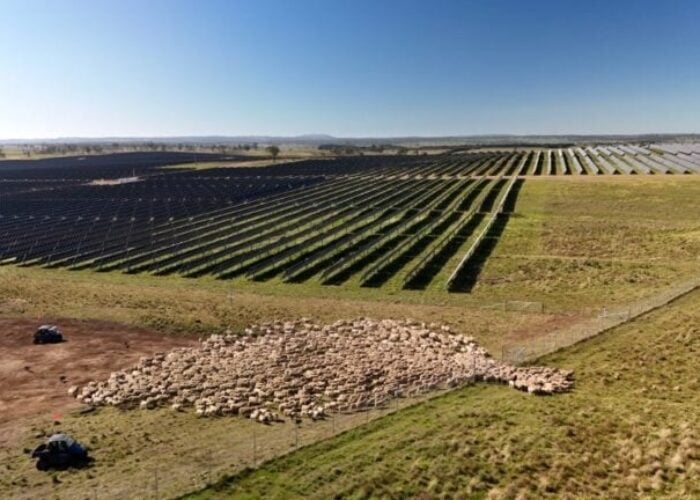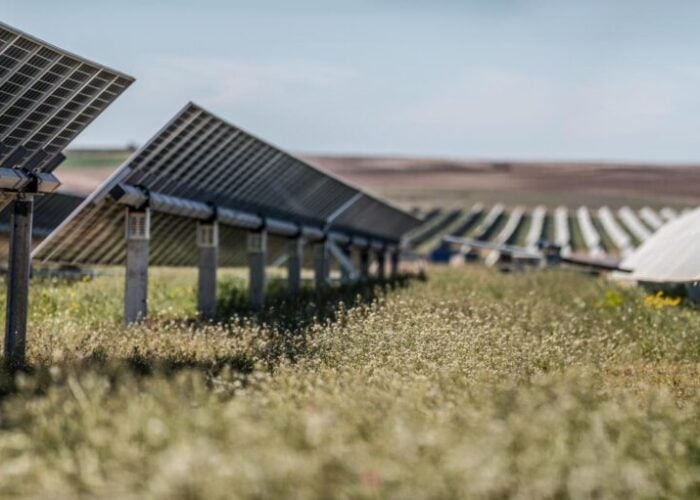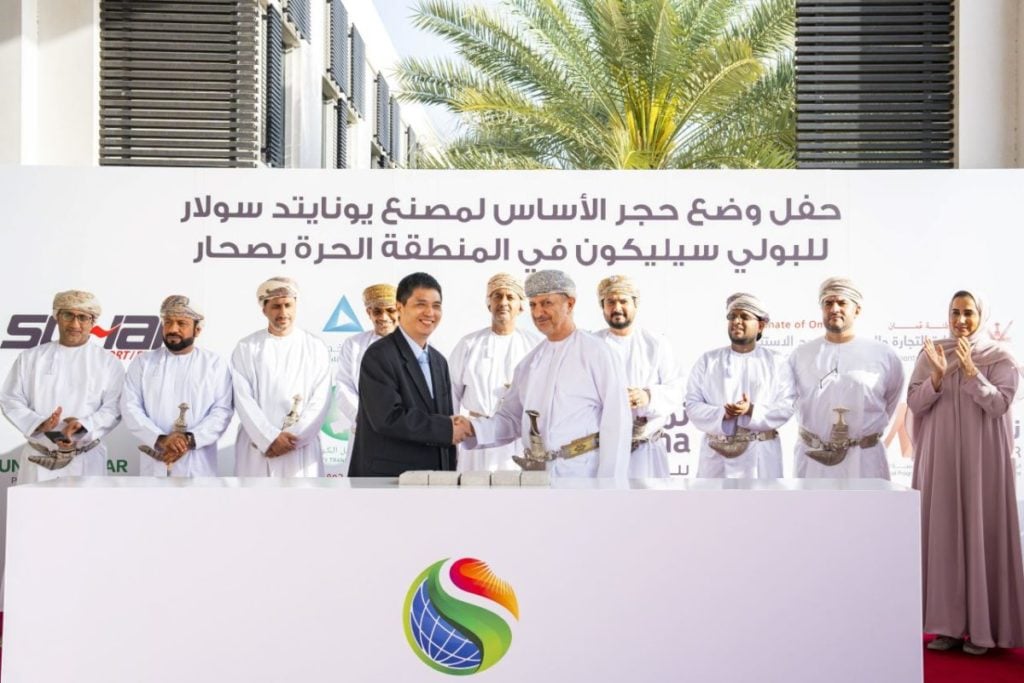
The World Bank has approved a loan and investment worth up to US$250 million for United Solar’s planned polysilicon production plant in Oman.
The financing, issued by the World Bank’s International Finance Corporation (IFC), comprised a loan of up to US$200 million and a US$50 million equity investment.
Try Premium for just $1
- Full premium access for the first month at only $1
- Converts to an annual rate after 30 days unless cancelled
- Cancel anytime during the trial period
Premium Benefits
- Expert industry analysis and interviews
- Digital access to PV Tech Power journal
- Exclusive event discounts
Or get the full Premium subscription right away
Or continue reading this article for free
The facility, which is in the Sohar Free Zone of Oman, began construction in March 2024 and is earmarked to have 100,000MT of annual polysilicon production capacity upon completion. It will be the first polysilicon plant in the Middle East
All in, United Solar said the site will represent around US$1.6 billion in investment. The company secured a US$156 million investment from the Oman sovereign wealth fund in October last year.
According to reports from Reuters, the IFC’s US executive director opposed the investment. Executive directors representing Germany, the Netherlands and Nordic countries abstained from the vote on the financing.
This opposition reportedly stemmed from the company’s exposure to China.
United Solar Polysilicon’s major shareholders are Chinese asset manager IDG Capital, which invested US$158 million in the firm in September 2023, and the company’s founder, Longgen Zhang, who was previously vice chairman of Xinjiang Daqo New Energy, a major Chinese polysilicon producer.
Middle East solar capacity
There have been a number of significant plans for solar manufacturing capacity in the Middle East, often from Chinese or Chinese-backed companies.
In July, Chinese firm Q-Sun announced plans to build a 10GW n-type cell and module facility in Oman; the Saudi Arabian Public Investment Fund (PIF) signed deals with a subsidiary of Chinese solar manufacturer TCL Zhonghuan Renewable Energy to build silicon ingot and wafer manufacturing capacity, and JinkoSolar is intending to build 10GW of cell and module capacity in Saudi Arabia.
Where Chinese money goes in the solar sector, trade issues tend to follow. PV Tech has previously heard from an anonymous analyst that the Middle East could eventually become a target for US import tariffs against Chinese solar products, and plans to limit Chinese dominance of the EU solar supply could also come into play.
Polysilicon overcapacity
The global polysilicon industry is massively oversupplied, almost entirely by Chinese producers.
Polysilicon prices have tumbled in recent years, leading to sustained financial losses for the major Chinese producers, which have rippled down the supply chain.
Currently, rumours are circulating that the Chinese industry plans to buy up and decommission a vast amount of capacity with a US$7 billion fund to redress the supply imbalance and increase prices.
As well as United Solar, US firm Highland Materials is planning to build a new polysilicon facility in Tennessee. The company signed a land lease agreement for the site earlier this week.

